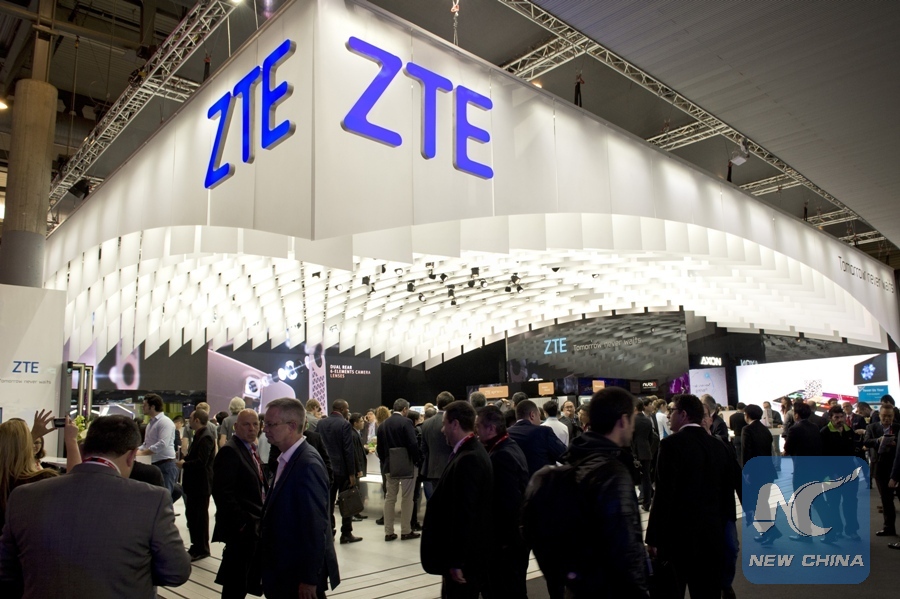
File Photo: Visitors walk in front of the ZTE stand at the Mobile World Congress 2016 in Barcelona, Spain, Feb. 22, 2016. (Xinhua/Lino De Vallier)
SAN FRANCISCO, April 19 (Xinhua) -- The U.S. ban on exporting components to China's major telecom manufacturer ZTE could hurt the development of fifth-generation (5G) smartphones and plan of building a fast 5G wireless service, a California-based expert said Thursday.
The U.S. Department of Commerce on Monday announced suspending the export privileges of ZTE in the next seven years for alleged violations of the Export Administration Regulations.
"From a 5G telecom equipment point of view, I don't think this hurts the company too badly, but this will hurt 5G smartphones and any aspirations in the 5G edge data center," said Patrick Moorhead, president and principal analyst of Moor Insights and Strategy, a global technology consulting company.
5G is the proposed next telecommunications standard, aiming at higher capacity than the current 4G. The next seven years are considered as a critical period during which the world's telecom companies are developing and launching 5G technologies.
ZTE's major suppliers in the United States include Qualcomm and Intel for chips, and Acacia Communications and Lumentum for optical components.
"The implications (of the ban) are that ZTE will have challenges competing in smartphones and edge computing," said Moorhead.
China's Ministry of Commerce (MOC) said Thursday that the U.S. ban would end up having an adverse impact on the country itself.
"If the United States attempts to curb China's development and force China to make concessions by sticking to its unilateral protectionism at the cost of harming the interests of Chinese and American enterprises, it miscalculates," MOC spokesperson Gao Feng said.
ZTE has 14 offices and six research centers in the United States and supports nearly 130,000 high-tech jobs in the country.

